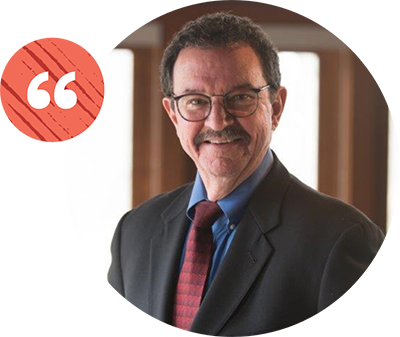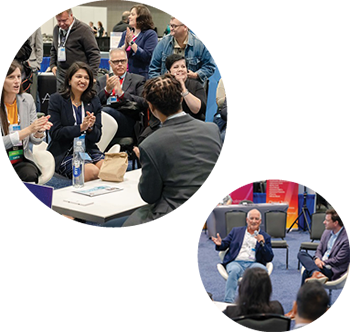
AABB interviewed Dan A. Waxman, MD, vice president and senior medical director at Versiti, a returning participating organization in the Biotherapies Pavilion at the 2024 AABB Annual Meeting. Read the interview below to learn more about the Versiti team.
My name is Dan Waxman, MD, and I am vice president and senior medical director for Versiti Blood Center. I am also the principal investigator and medical director for Beacon Biologics, a biotherapies collection center that Versiti established in Austin, Texas.
I grew up in Kansas City, o. I am the third of six children to physician parents, as my mother was a pediatrician and my father a cardiologist. I received my undergraduate degree at the University of Michigan (my mother’s alma mater). I went to medical school and did a pathology residency at the University of Kansas. During my residency, I was fortunate to meet a special education teacher, Sharon Engbrecht, to whom I have been married for 40 years. We have 14 nieces and nephews and now two great-nephews and four great-nieces. Since we live on a lake in southern Michigan, we get to see family a lot!
My transfusion medicine fellowship was at the Community Blood Center of Greater Kansas City, where I worked for seven years before taking positions at blood centers in Dallas (Wadley Blood Center), Detroit (American Red Cross), and Indianapolis (Indiana Blood Center), which joined blood centers in Milwaukee, Wisc., Aurora, Ill., and Grand Rapids, Mich., in 2015 to form Versiti.
As vice president of transfusion medicine blood services, the Versiti Blood Center-based medical directors in each of the four states report to me. We cover the clinical aspects of the blood center operations and are the medical directors of our respective blood product processing labs and AABB-accredited immunohematology reference labs.
Our biggest challenge in the last five years, especially during the height of the pandemic, was to maintain our core business of recruiting and collecting whole blood and apheresis donors while starting to diversify our work in biomaterial provision and support of clinical trials on a national basis.

As a blood center, Versiti is naturally positioned to continue to provide high quality starting materials to enable the development of novel therapies. We must continue to lead the way in developing robust registries of highly characterized donors to meet the coming needs in cell therapy, particularly in the allogenic space. As expert cell collectors, we need to expand our apheresis capabilities to support more Day 0 processing for current autologous therapies while partnering with our community health service providers to bring new therapies closer to the patients.
Versiti and other blood centers are a natural bridge between pharmaceutical manufacturers and the local community. We can play a role in the decentralization of manufacturing and distribution of cellular therapies as treatments move upline and become available to patients before advanced disease. Versiti needs to help develop standards for quality and regulatory oversight of starting materials, which then helps the industry create more reliable supply chains to support growth.
AABB’s largest advocacy can come in the same way they have brought value historically: standardization and accreditation. AABB must continue to use its influence to help drug developers to see the value of its members as starting material providers and the expertise we provide to the industry.

The cell therapy industry has struggled to meet expectations. However, the diversification in new targets and cell platforms is spurring renewed excitement. While the initial focus has been in blood cancers, the impact to solid tumor and successes in autoimmune applications is a tremendous outlook for the field in relation to the number of patients that can be reached. Additionally, the new technology in decentralized manufacturing and the push in allogeneic platforms can help drive down costs of treatments to reach more patients.
While the concept of cellular therapy is arguably not new, the ideas and rapid advancements in technologies are constantly new. This dynamic environment is an exciting space to work, as we are constantly moving and pushing the frontiers of health innovation. Knowing that we are working still on the ground floor of an industry that can, and will, bring life-saving cures to so many well outweighs the hurdles and challenges of blazing trails.
My advice to those starting a biotherapies career: No matter what area of the industry you choose to start your career in, you will have the opportunity to learn so much more than what you expect. Simply due to the immaturity of the industry, there is overlap and dependency of disciplines that generates excellent environments for teamwork, collaboration and both personal and professional growth as you navigate the uncertainty of the industry. But when everything is uncertain, anything is possible.
Register your interest in biotherapies sponsorships, connection packages and other opportunities at the 2026 Annual Meeting, taking place October 17-19, in Atlanta, GA.
